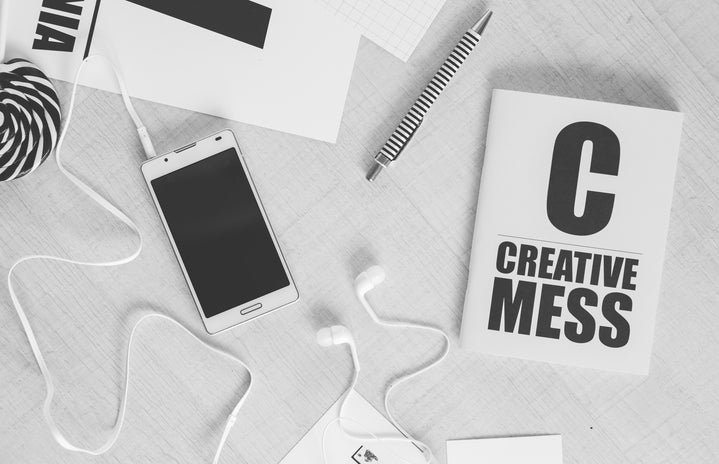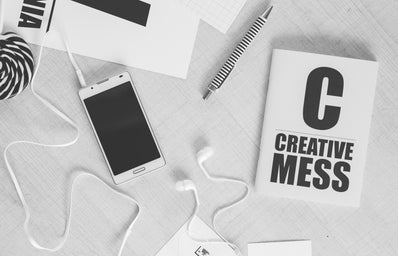Summer is fast approaching, which means many collegiettes have job and internships interviews coming up. You already know how to write a perfect cover letter and how to craft an awesome resume—but interviewing is a completely different animal. Being put on the spot can be super stressful and intimidating, but with enough preparation and practice, acing an interview can become second-nature.
We asked Martin Yate, the author of the award-winning Knock ’Em Dead job search book series for his best interviewing tips for collegiettes. Follow this guide and you’ll be sure to nail the interview and land the job!
1. Do your research.
Sure, you might be able to give an impromptu speech in Public Speaking 101, but an interview is not the time to test your improvisation skills. No matter what, you need to be prepared for a job interview. Most of that preparation comes in research. You’ll want to be knowledgeable about the company, the job you’re applying for, and the interviewer.
First to find out more about the company, you can do a quick search on Google, Facebook, Twitter to learn the basics. See if they have accounts on Pinterest, Tumblr, or Instagram, too. To take it a step further, set up a Google media alert. Just type in the company’s name, and Google will email you new stories, blogs, videos, and more to give you up-to-the-minute news about the company. Make sure you know the basics about the company, like what it does, where it’s based, and who its clients are if applicable.
“It is so easy to find out about the company and what they are doing,” Yate said. “They want to know that you are interested in them. By showing that you understand what the company does, that demonstrates your interest.”
If you know their names, researching the interviewer(s) can also show your preparedness. By searching them on Facebook and LinkedIn, you can find out a little bit about them. Yate suggests looking for connections—maybe you went to the same college or are the in the same sorority. Bringing up those connections can help you bond with the interviewer. And even if you don’t have anything in common, you’ll likely find out what the interviewer looks like, which might make you less nervous about meeting them for the first time.
If you don’t know who’s interviewing you, ask! Ideally, you should ask this question when you set up the interview. However, if you didn’t find out already, calling to ask will show the interviewer that you’re doing your homework.
Finally, you need to know about the job you’re interviewing for. “You can find out more about the position by reaching out to people you know who are doing this job or who have done this job,” Yate said. Talk to people either at the specific company you’re applying for, or who hold a similar job in the field. Yate also suggests connecting with your college’s alumni association and joining special interests groups on LinkedIn that relate to your career field.
Having this base knowledge will show your interviewer that you took the time to do the research, which in turn shows that you’re serious about the job opportunity. Plus, doing the research can make you more confident because you’ll be able to engage in educated conversations with the interviewer.
2. Dress the part.
“You’re trying to get hired—not date,” Yate said. That means you need to make sure that you’re showing an appropriate amount of skin. A short-sleeved dress is probably acceptable, for example, but avoid showing cleavage or wearing a short skirt. Also, make sure your outfit isn’t too tight—you don’t need to show off your killer curves to get a job. Marilyn Monroe put it best: “Your clothes should be tight enough to show you’re a woman but loose enough to show you’re a lady.”
Stick with closed-toed shoes, even if it’s warm out. A pair of simple black or nude pumps will do the trick. But be mindful of the heels’ height! “You cannot look professional teetering around in five-inch heels,” Yate says. Keep your heels no higher than three inches.
But dressing professionally doesn’t mean you have to wear a suit. “Most people will say, without a doubt, dress professionally to an interview. But nowadays, this isn’t always the case,” said Christine Marshall, a collegiette from William Paterson University of New Jersey. She advises asking a current or past employee how they dressed for their interview or how they dress on a regular workday. “Some companies have a casual-wear policy, so walking into your interview in a suit really wouldn’t fit in with the atmosphere. Your clothing choice should not only reflect your personality, but it should also showcase how well you’ll fit into this company.”
There are plenty of ways to look professional and show of your personality. Adding a pop of color in your shoes, jewelry, or a blazer can make your outfit look vibrant and exciting. Or try a pencil skirt with a patterned blouse for a mix of fresh and professional. Or, of course, you could always keep it simple with a classic black dress and simple jewelry. Check out this HC article on what to wear to an interview for more ideas!
3. Bring the essentials.
Don’t go into an interview empty-handed! There are a few key things to bring with you:
- A professional-looking bag to carry everything in
- A few extra copies of your resume
- A list of references
- Your business card
- A notebook and pen
- Portfolio/work examples (if applicable)
If you’re in a creative field that includes writing or design, be careful about showing off your previous work. “There’s a difference between a professional interview and show-and-tell in third grade,” said Yate. Don’t pull out your work unless asked. The other appropriate time to show your clips is if the best way to answer a question is by showing a specific example. For instance, if you’re asked about your reporting skills for a journalism job, you might want to show a story that required a lot of research and interviewing.
Plus, don’t forget to bring directions or a GPS, and the interviewer’s phone number, just in case you get lost or something goes wrong. You may not use them, but you’re better off safe than sorry!
4. Showcase your skills and best qualities in your answers.
The hardest part of any interview is… well, the interview! Being put on the spot and talking about yourself isn’t easy, but there are ways to make sure you best demonstrate why you’re well-suited for the job and impress your interviewer.
If you’re nervous about answering questions in your interview, Christine advises practicing answers to questions you think they’ll ask, so that you’ll have an eloquent response in the interview. “Have a friend ask you the questions and draft up your answers on the spot,” Christine suggests. “Make sure she gives you feedback on your answers.” Here are some of the most common interview questions you can practice answering:
- Tell us about yourself.
- Tell me about your resume.
- Why do you want this job?
- Why did you decide to pursue a career in this industry?
- What are your strengths and weaknesses?
- What is your proudest accomplishment?
- Describe a time that you made a mistake.
- How would your professors/friends/colleagues describe you?
- What did you learn most from your internship at XYZ Company?
- Where do you see yourself in 5 years?
Still, the interviewer might ask you some questions you’re not expecting. In this case, Yate says the most important thing to remember is to tailor your answers to the responsibilities of the specific job you’re applying for.
You can do that by showing how your skills, qualities, and past experiences can lend themselves to this position—and one of the best ways to do that is showing how you’ve done that in the past using the STAR method.
STAR stands for Situation, Task, Action, Results. First, give the interviewer the background on a difficult situation you recently faced, and tell them what the task you had to accomplish was. Then, describe the actions you took to solve the problem. Finally, tell them the results of your actions to demonstrate how your talents have been beneficial in the past and can be beneficial in the future.
These examples should come from previous jobs or internships. You can talk about classes or extracurricular activities if they apply to the job and if you can relate them to the responsibilities of the job. However, showing that you have real world, professional experience will set you apart.
5. Ask good questions.
Near the end of the interview you’ll almost definitely be asked, “Do you have any questions for me?” The answer is always “Yes!” Asking questions shows that you’re not only interested in the job for your personal benefit, but you’re also interested in the company and the team. “These questions turn a one-sided examination into a two-way conversation between a couple of professionals with a common interest,” Yate said.
That being said, watch how many questions you ask. “You don’t want to ask a question after every question they ask,” Yate said. “If you do that, it shows that you are trying to take control of the conversation.”
Here are some of the best questions you can ask:
- What are some of the responsibilities I’ll have in this position?
- What have other people in this position found most difficult?
- What would you say is the biggest challenge in this position?
- What’s something I should learn before starting the job/internship?
- What are the most important qualities for the person in this position to have?
- What equipment / software do you use? (if relevant)
- When something goes wrong, how do you like the problem handled?
- What is your timeframe for filling the position?
6. Send a thank you note.
Even though the interview is over, there’s one more thing you need to do to impress an employer: send a thank you note!
Yate said you should always send an email on the same day as your interview, but if you have several days or weeks before they make a decision, you should send a note through snail mail, too. “Nobody gets mail anymore, so it’s a lovely break from the computer screen for the interviewer,” Yate said. “Plus nobody else does it, so you’ll stand out.”
What should you write in your thank you note? Luckily, you can keep it pretty short—three or four sentences are usually enough. Here’s what you need:
Dear Ms. Smith,
Thank you so much for taking the time to talk with me today about the [job title] position. I enjoyed learning more about [the company] and the exciting opportunities it has to offer. After hearing more about the job, I’m confident that my experience and skills will make me a positive addition to your team. Thank you again for your time and consideration. I look forward to hearing from you soon.
Sincerely,
Your Name
Yate says that if you answered a question in the interview poorly, you can redeem yourself in a thank you note or email. You can say you didn’t quite answer the question fully, and you want to make sure the interviewer knows everything they need to about your skills, qualifications, and interest in the job.
Even if your next interview is intimidating, following these tips will help you shine! The best part is that even if you don’t get the job, you can think of the interview as great practice. The more interviews you have, the more confident you will be and the more likely you are to succeed in the future!
Do you have any more tips to ace an interview? Share them in the comments!

